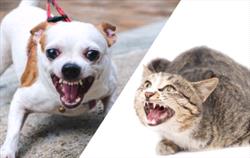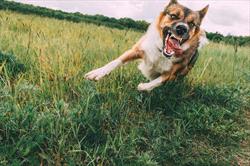[ad_1]
hostile canine as well as cat.jpg
Intro
The medical diagnosis of main habits troubles such as anxiousness, hostility, or removing outside the litterbox is frequently a medical diagnosis of exemption. Since numerous habits arise from underlying clinical problems, an adjustment in habits might be the very first indication you see. When habits modifications take place, it is essential to have your animal reviewed by your vet, also if that modification is refined. Some typical behavior modifications that can show a clinical condition consist of:
- resting extra throughout the day or difficulty resting during the night;
- relocating much less;
- pacing, panting, as well as difficulty working out;
- licking individuals as well as items;
- hostile feedbacks;
- urinary system as well as fecal mishaps;
- attacking at the air or their sides;
- damaging habits;
- eating, attacking, as well as damaging;
- a boost in level of sensitivity to sounds;
- refusing strolls;
- decline in cravings;
- unwillingness to play.
Warnings as well as Actions
When assessing the habits of your animal, there are some “warnings” to expect that to show there might be a clinical trouble. As an example, when an older canine without a background of hostility instantly breaks or attacks, or a middle-aged canine instantly ends up being even more frightened of electrical storms, there might be something extra taking place. Any type of current modification or unexpected development of habits ought to be checked out, particularly if your animal’s setting as well as routine have actually not transformed.
Actions as well as Disease
Any type of disease can alter habits. When your animal ends up being unwell, in some cases a brand-new habits, such as peing in your home, will certainly continue also after the disease settles. In this situation, your feline might establish a different place for removal that is easier than their litterbox. The very same holds true with pet dogs.
hostile dog.jpeg
Clinical Problems that Adjustment Actions
Discomfort has actually been connected to practically every you can possibly imagine habits modification in pet dogs, such as sound level of sensitivity, splitting up anxiousness, sensitivity as well as hostility, as well as overstated feedbacks to touch. In felines, discomfort can cause hostility, hyperesthesia, as well as overgrooming. In steeds, throwing, bolting, or aversion to function might show discomfort. If a pet is not hopping or weeping when relocating, animal proprietors might rule out discomfort as a contributing aspect to their animal’s habits.
Neurologic problems are frequently incorrect for habits troubles. Actions that look uncontrollable in nature (such as fly breaking) can be partial seizures, as can hostility. Particular bloodsuckers or infections can impact the mind as well as nerves straight. Troubles with activity in some cases show up behavior when they are neurological in nature. As an example, ataxic (unstable) pet dogs might drop or rest on strolls or when they obtain delighted. Neurologic condition is frequently intensified by exhilaration or anxiety, developing a cycle of excitability as well as worry.
Dermatologic condition is among the major factors for behavior modification in numerous types. Pets with persistent pruritis (scratchy) can establish anxiousness or act boldy, especially when come close to by individuals or various other pets. Dermatologic condition can bring about numerous various other habits, such as running as well as articulation in felines because of hyperesthesia, uncontrollable licking, or tail chasing.
Stomach conditions (consisting of discomfort) can additionally look like modifications in habits. Take into consideration intestinal reasons such as food allergic reactions, inflammatory digestive tract condition, or various other digestive system concerns in pet dogs that protect food specifically. Extreme licking (fly attacking) because of queasiness is frequently misdiagnosed as anxiousness also.
Thyroid condition has actually additionally been connected to habits modification. Hyperthyroidism (over active thyroid) will certainly trigger boosted alcohol consumption habits, task, as well as articulation. Hypothyroidism (underactive thyroid) might cause reduced task or hostility in many cases. Some clinical research studies discovered thyroid condition to be much less of a consider behavior modifications. Thyroid hormonal agents ought to be regularly gotten in touch with any kind of habits modification, particularly if various other signs of thyroid condition exist.
Liver condition can trigger sleepiness, boosted alcohol consumption, as well as a decline in cravings. When the liver is not operating well, its duty in cleansing as well as handling of items of food digestion suffers. Unusual capillary can trigger items of food digestion to bypass the liver completely (liver shunt). When this takes place, contaminants develop in the blood as well as impact the mind (hepatic encephalopathy), leading to habits modifications such as head pushing, pronouncing, ataxia, seizures, as well as hostility. These habits can intensify after your animal consumes, especially if the dish is high in healthy protein.
Drugs such as steroids, hormone lotions, as well as anti-seizure medicines can trigger modifications in habits as well. Pet dog proprietors have actually reported behavior modifications with antibiotic usage, probably because of modifications in intestine microorganisms. Drugs recommended by vets for behavior conditions do not straight alter habits; rather, they minimize anxiousness as well as worry by permitting favorable behavior modifications to occur.
Final Thought
If your animal experiences an uncharacteristic or unexpected modification in habits, it is essential to arrange a test with your vet. Your animal might be experiencing a clinical problem that requires to be dealt with.
[ad_2]



